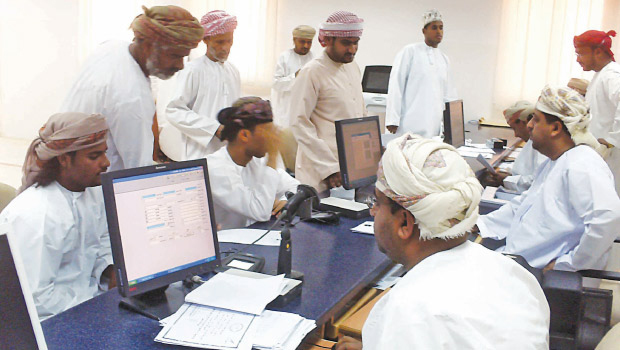
MUSCAT: Omanis can now take up part-time work under the Ministry of Manpower’s new regulations that specify minimum pay, working hours and other benefits such workers will be entitled to.
These regulations have been activated following the suggestions put forth by the labour labs of Tanfeedh, a national initiative which is part of the 9th Five-Year Development Plan (2016-2020).
According to these regulations, Omanis can be employed part-time for not less than four hours daily and not more than 25 hours a week.
The decision stipulates that the employer will have to pay a minimum wage of OMR3 per hour to the worker. Also, it will be mandatory for the employer to provide insurance cover to the worker against work injuries through one of the approved insurance companies in the country.
The work contract should specify the work hours, work days, hourly wage and the type of work. The employer should also register part-time employees with the Ministry of Manpower.
However, the decision bars full-time employed workers from taking up part-time jobs.
Shaswar Al Balushi, the head of the Tanfeedh labour market lab, said this move will open up opportunities for women and retired people looking for part-time jobs.
“Women who prefer a part-time job to a full time one can benefit. Moreover, companies can also benefit from retired people’s expertise through this move,” Shaswar added.
“This move will ease the situation as far as shortfall in job
opportunities is concerned,” Shaswar added.
Omani school students
The move will provide more jobs, especially for Omani school students, and will enable them to gain experience that could eventually help them to join the labour market easily after they graduate from school.
As per the decision, students aged between 15 and 17 years can take up part-time jobs where working hours are between 6am and 6pm.
There were 43,858 job-seekers in Oman at the end of 2016, according to the figures released by the National Centre for Statistics and Information (NCSI).
A majority of job-seekers were in the age group of 25 to 29 years and most of them were college graduates, according to statistics.
The number of job-seekers had increased slightly, by 0.1 per cent, as of the end of December 2016 (15,831 males and 28,027 females) against November of the same year.
The job-seekers’ number stood at 20,869 in the age group of 25 to 29 years, followed by 12,700 in the age group of 18 to 24 years, 7,231 in the age group of 30 to 34 years and 2,735 in the age group of 35 to 39 years while 323 job-seekers were above the age of 40.
The number of migrant workers stood at 1,848,175 as of the end of December 2016, according to the NCSI.
A total of 1,504,936 of them were working in the private sector, 60,196 in the government sector, while 283,043 were working for families as domestic help and drivers.